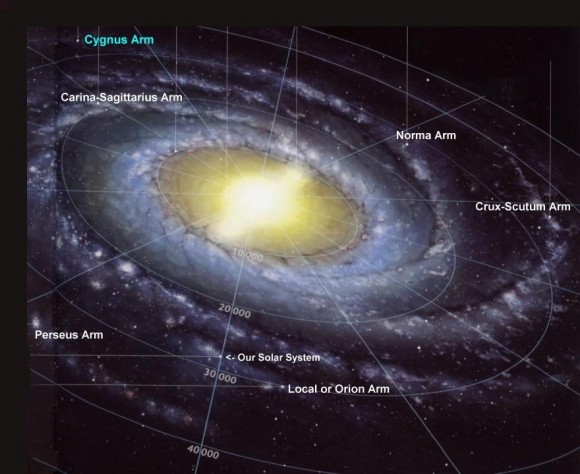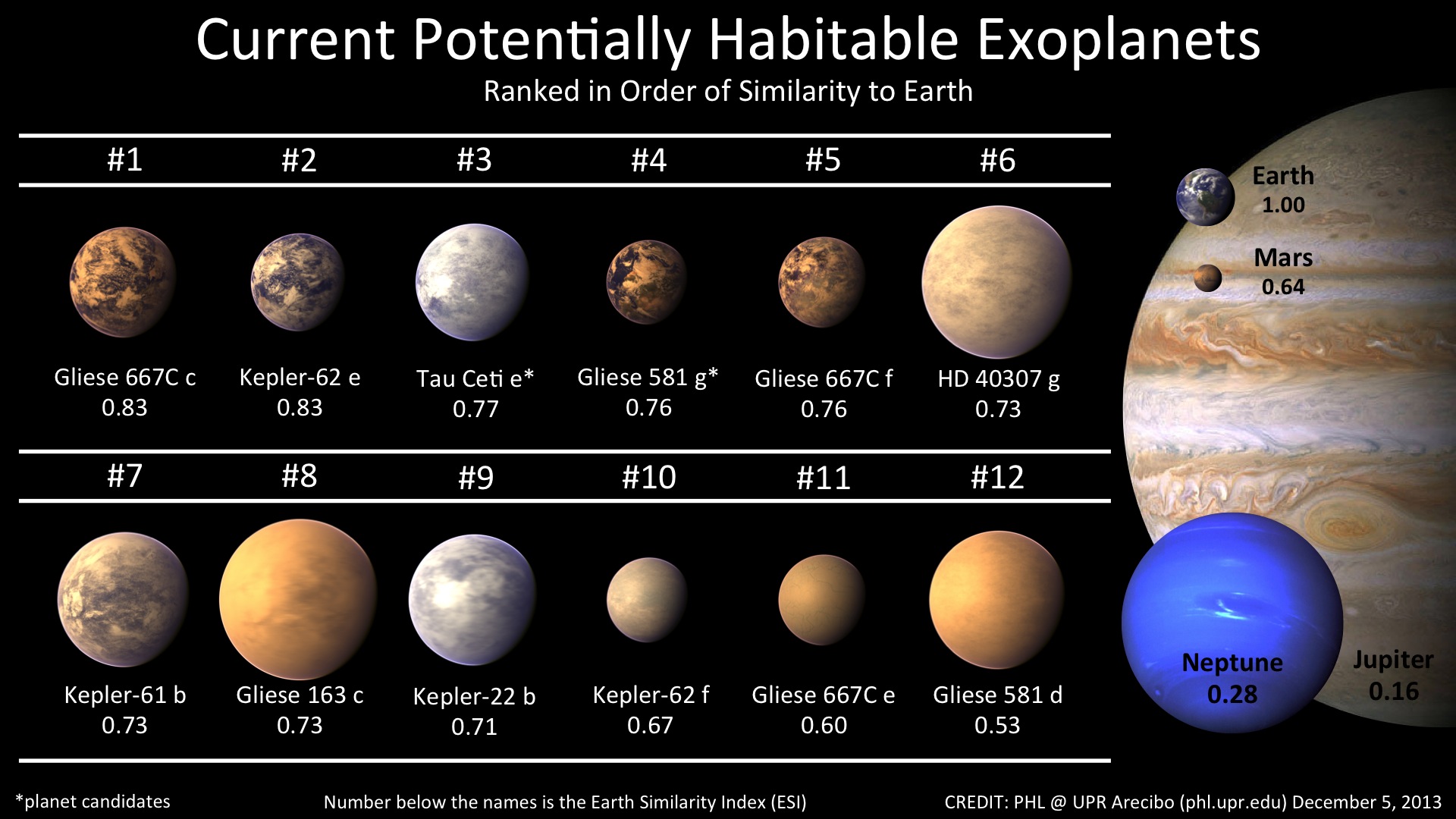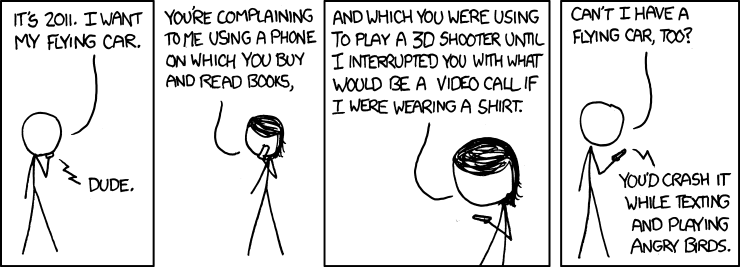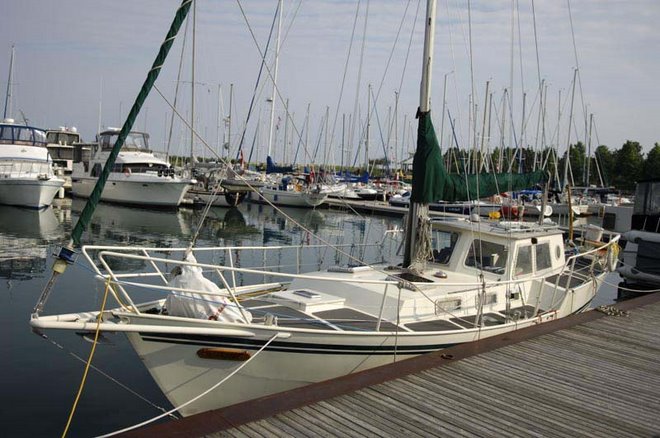 |
| Like a signal mirror from a liferaft on the eastern horizon at dusk |
It makes one think if it is just me who is mulling over the phrase "and that's as far as those quarrelsome, greedy apes ever got".
Along the lines of the saying "if you can't be a good example, you'll have to be a horrible warning", I have a mild if long-standing concern that our species' entire, self-regarding existence is going to be some more rational species' cautionary bedtime story.
 |
| Ourselves as seen through billions of miles of solar system. Customs lineup to the right. |
 |
| Upon reflection, the Crux-Scutum Arm sounds a lot sexier. |
Of course, there's no evidence that such lofty beings exist, know of our existence, or think such thoughts, or even possess processes we could even recognize as thoughts. Still, the last ten years have brought discoveries that life, perhaps even intelligent life, could exist in other star systems. Just as Captain Cook discovered a number of places that weren't, in fact, Terra Nullius, we may yet learn, maybe in my lifetime, some distant star's companion to be already occupied. This could happen indirectly or by inference; while on delivery and while passing some 30 NM to the southwest, I never actually clapped eyes on Bermuda, but I certainly noticed the unmistakable sodium glow of the loom of its lights, and I accept that Bermuda exists. Such is progress: its marching boots are heard over considerable distances.
 |
| After the circ, the Big Circ? |
 |
| Mustn't grumble! |
I wouldn't call a steel yacht a poor substitute; in fact, it grants its crew a higher degree of mobility than would a flying car (the movements of which would require enormously complex "traffic controls" and a possibly dubious surrender of driver autonomy as is being contemplated for "regular" cars). I dreamt of even taking a holiday on the moon, which besides being extremely expensive in terms of resources, would require a vast infrastructure, training and specialized equipment. And perhaps we humans will, when venturing forth, if we venture forth, need a human/machine interface of varying degrees of depth, just to amplify our senses and brainpower to meet the challenges of exceedingly hostile environments.
 |
| How 1988 saw 2013 Los Angeles: more Star Trek than Blade Runner, but it's actually closer to Storage Wars. |
I might, were I being unusually sincere, admit that the steel boat adventure project springs from the same impulses that so badly desired a future more...well, futuristic. Barque to the Future? Perhaps.
A boat's better, or at least less daunting, in that regard. Replete with "old tech" of line and sail, toggles and tangs, and pumps and rudder, it's easy to throttle back on the futurism in favour of enjoying just wind and wave, or, at least, to cherry pick from those basket of modern devices and services we wish to utilize.
 |
| His beard would kink depending on the latitude. |
Same with the crew: Human sailors today are scarcely more advanced mentally than was the average Greek 23 centuries ago, chilly and off-course to the Tin Islands. We may not be aquatic apes, as one theory once held, but humanity's familiarity with and comfort upon the water goes back a very long way, as does our urge to wander and explore.
 |
| This would be a lot easier if I could remember where I left my canoe. |
A voyaging boat is also more in the spirit, at least historically, of the same motives that prompted the space probes of the 1970s and '80s, and for which, it would appear, we lack the funds and intent to continue. While the typical cruising boat has, in every respect, more "outs" in terms of rescue and more tech to guide its crew to safe anchorages, there is still a shot-in-the-dark aspect to sailing, plus a need for lateral thinking, that the skipper trying to plug a leak at night in a gale and the mission controllers of Voyager, trying to send revised instructions in half-forgotten code to very simple processors wired into a speeding, frozen box light-hours away, might both recognize.
"From this distant vantage point, the Earth might not seem of any particular interest. But for us, it's different. Consider again that dot. That's here. That's home. That's us. On it everyone you love, everyone you know, everyone you ever heard of, every human being who ever was, lived out their lives. The aggregate of our joy and suffering, thousands of confident religions, ideologies, and economic doctrines, every hunter and forager, every hero and coward, every creator and destroyer of civilization, every king and peasant, every young couple in love, every mother and father, hopeful child, inventor and explorer, every teacher of morals, every corrupt politician, every "superstar," every "supreme leader," every saint and sinner in the history of our species lived there – on a mote of dust suspended in a sunbeam.
The Earth is a very small stage in a vast cosmic arena. Think of the rivers of blood spilled by all those generals and emperors so that in glory and triumph they could become the momentary masters of a fraction of a dot. Think of the endless cruelties visited by the inhabitants of one corner of this pixel on the scarcely distinguishable inhabitants of some other corner. How frequent their misunderstandings, how eager they are to kill one another, how fervent their hatreds. Our posturings, our imagined self-importance, the delusion that we have some privileged position in the universe, are challenged by this point of pale light. Our planet is a lonely speck in the great enveloping cosmic dark. In our obscurity – in all this vastness – there is no hint that help will come from elsewhere to save us from ourselves.
The Earth is the only world known, so far, to harbor life. There is nowhere else, at least in the near future, to which our species could migrate. Visit, yes. Settle, not yet. Like it or not, for the moment, the Earth is where we make our stand. It has been said that astronomy is a humbling and character-building experience. There is perhaps no better demonstration of the folly of human conceits than this distant image of our tiny world. To me, it underscores our responsibility to deal more kindly with one another and to preserve and cherish the pale blue dot, the only home we've ever known."
-Carl Sagan










